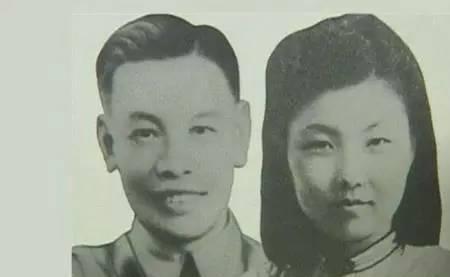In February last year, the private diary of former Taiwan leader Chiang Ching-kuo was officially released to the public at the Hoover Archives of Stanford University in the United States, and the "Chiang Ching-kuo Memorial Library" will also open at the end of May. Lin Xiaoting, director of the East Asian Collection Department of the Hoover Archives, will publish a new book, "Chiang Ching-kuo's Taiwan Times," which will be published today to unveil the secrets of the two sides of the strait that were not known at that time, and to interpret the mystery of the disappearance of the 100-page diary related to Zhang Yaruo, and to analyze the relationship between Chiang Ching-kuo and his father Chiang Kai-shek and stepmother Soong Mei-ling.

Chiang Ching-kuo's diary was written from 1937 to 1979. In an exclusive interview with Taiwan's Lianhe Pao, Lin Xiaoting said that Chiang Kai-shek was influenced by Wang Yangming, a great Confucian of the Ming Dynasty, and not only wrote a diary every day, but also hoped that his subordinates and sons would write a diary. After Chiang Ching-kuo returned to China from the Soviet Union in 1937, he wrote a diary every day at the request of his father, and handed it to his father at the end of each year.
In his diary, which lasted for forty-two years, Lin Xiaoting found that nearly a hundred pages of the diary in 1941 and 1942 were missing. If you compare these days with Chiang Ching-kuo's whereabouts at that time, you will find that many of them are diaries, which should be records of Chiang Ching-kuo's several visits to Guilin after Zhang Yaruo went to Guilin to give birth. Including in February 1942, under the extreme inconvenience of transportation during the War of Resistance Against Japanese Aggression, Chiang Ching-kuo went from Gannan to Guilin alone for the Lunar New Year. Lin Xiaoting believes that the contents of these disappeared diaries should all be related to Zhang Yaruo.
In the spring of 1942, Chiang Ching-kuo called Zhang Yaruo "Huiyun" in his unbroken diary, frankly saying that "the power of feelings is great", and when there was no work, "that is, the conscious spirit has no place to sustenance, and the mind is uncertain", he believes that he loves Zhang Yaruo "out of sincerity and from the heart", but because of the general environmental factors, he is sorry for her, "I don't know if he can forgive my pain?" On the day he received the news of the birth of filial piety and filial piety, Chiang Ching-kuo wrote the words "joy in his heart" in his diary.
However, Chiang Ching-kuo added in his diary in 1954 that he denied that filial piety and filial piety were his descendants, but that his late best friends Wang Jichun and Zhang Yaruo were born and lied in the diary.
Mr. Lin said he was not in a position to speculate whether the diaries had been torn up by Chiang Ching-kuo himself or his descendants, and the motives for the tearing up. But judging from the perspective of human nature, Chiang Ching-kuo rose to the ranks of the Kuomintang's power succession in the 1950s, and his actions could not fail to take into account his father's perception of him, and Chiang Kai-shek read his diary every year. Whether or not Lao Jiang was aware of his past extramarital affairs, at this critical moment when political enemies were around and the power struggle was fierce, he may have decided that it was necessary to tell a lie and let his father understand his attitude towards this past through the expression of the diary.
It is widely rumored that Chiang Ching-kuo once competed with Ren Xianqun, director of the Ministry of Finance, for Gu Zhengqiu (Peking Opera Danjiao), and Lin Xiaoting revealed that Chiang Ching-kuo's diary that his pursuit of Gu Zhengqiu was fictitious and that he was a rumor made up by political enemies, but he did express his dislike for Ren Xianqun in his diary. (Editing by Xue Yang)